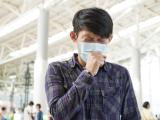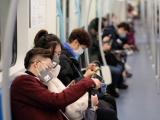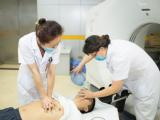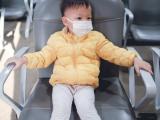Mar 15, 2004 (CIDRAP News) A study in which mice developed antibodies to the SARS coronavirus indicates that efforts to make a SARS vaccine that would trigger the production of antibodies are on the right track, according to federal health officials.
Researchers with the National Institute of Allergy and Infectious Diseases (NIAID) found that mice that were exposed to the SARS virus developed antibodies that blocked replication of the virus, according to an NIAID news release. Further, the researchers found that the antibodies could be transferred to other mice in serum and protect those mice from infection.
"This discovery affirms that researchers developing vaccines that trigger antibodies to the SARS virus are heading in the right direction," the NIAID said. The statement noted that vaccines can stimulate the immune system to produce either antibodies or specialized cells, or both, to stop invading viruses. The report of the study appears in the Apr 1 issue of the Journal of Virology, now available online.
"Knowing which arm of the immune system to trigger brings us one step closer" to making an effective SARS vaccine, said NIAID Director Anthony S. Fauci, MD.
Kanta Sabbarao, MD, of the NIAID's Laboratory of Infectious Diseases, led a team that examined whether mice could be infected with the SARS virus and, if so, how the mouse immune system responds. Initial experiments showed that the virus infected cells lining the mouse airways and lungs and replicated but did not make the mice sick, according to the journal report. Peak replication occurred within the first 2 days after exposure, and the virus disappeared within a week.
The investigators gave one subset of mice a second dose of the SARS virus 28 days after the first one. This time the mice produced antibodies against the virus, preventing replication. "Previous infection provided a high level of resistance in both the upper and the lower respiratory tract," the article states.
Finally, the researchers transferred serum from mice that had a previous SARS infection to uninfected mice. When the uninfected mice were exposed to the virus, it was unable to replicate. This "passive immunity" showed that antibodies alone prevented the mice from becoming infected, the NIAID said.
The study showed that the virus reproduced to a high enough level in the mice to permit testing of vaccines and antiviral drugs in this mouse model (BALB/c mice), according to the researchers. The mouse model will be useful for testing vaccines that stimulate protection with antibodies, but the rapid replication and clearance of the virus may limit the use of this mouse model for testing vaccines that induce protection through cellular immune responses, the report says.
The NIAID said researchers will work to develop a mouse model that more closely imitates SARS in humans. "The ideal laboratory mouse for SARS studies would exhibit the same disease symptoms as people so researchers could also use it to study how the illness progresses," the agency said.
Subbarao K, McAuliffe J, Vogel L, et al. Prior infection and passive transfer to neutralizing antibody prevent replication of severe acute respiratory syndrome coronavirus in the respiratory tract of mice. J Virol 2004;78(7):3572-7 [Abstract]
See also:
Mar 12 NIAID news release
http://www.niaid.nih.gov/news/newsreleases/2004/Pages/sarsmouse2.aspx


















